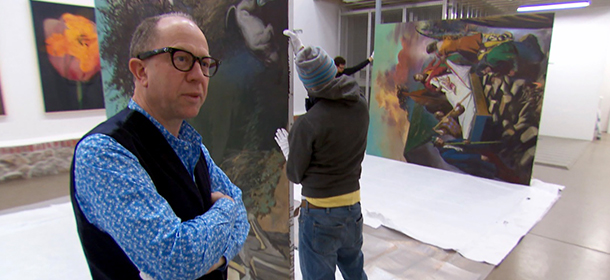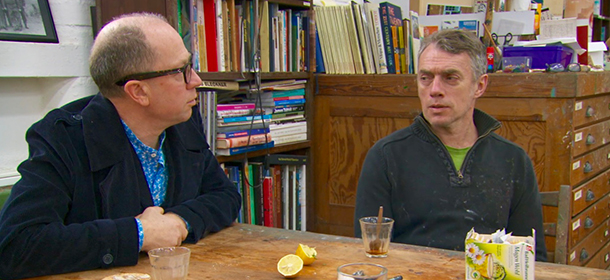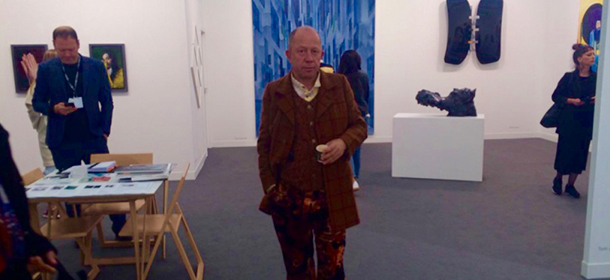Curriculum Vitae: Gerd Harry Lybke
Judy Lybke is a genuine phenomenon among German galerists: for the past 20 years, he has numbered among the most successful art dealers worldwide – but has nonetheless kept both feet planted firmly on the ground. This self-made native of Leipzig launched the second generation of the Leipzig School, the so-called “Neue Leipziger Schule” and secured success for an entire generation of artists, all of whose members studied at the Hochschule für Grafik und Buchkunst (Academy of Fine Arts) in Leipzig. His star artist continues to be Neo Rauch, but a number of students who arrived at the Academy after him have achieve recognition as well: Martin Eder, David Schnell, Tim Eitel, Matthias Weischer. The 56-year-old is hardly a typical businessman who carries his money to the bank. For this passionate art lover, luxury as such is of little consequence. He prefers skiing with his team, and enjoys inviting the entire group. By the way, there are 20 women, and just one man. “There's simply no denying that women are simply better at this job.” He allows himself only one indulgence: Judy Lybke is famous for his special, tailor-made suits.
Otherwise, he cultivates a casual style: he dresses everyone with the informal “du” – no matter how famous or prominent they may be. But he can also be a bit of a shark when it comes to advancing his gallery's success. And no one holds it against him that in the process, he cultivates an unpretentious, relaxed manner. His gallery “Eigen und Art” with locations in the Leipziger Spinnerei and the Mitte district of Berlin, are among the most important addresses on the international map of art galleries. It is represented at all of the major art fairs worldwide, and beyond that, Judy Lybke is constantly on the move promoting his artists, whether in London, Hong Kong, or Aschersleben. Located in the latter town is Neo Rauch’s Grafikstiftung (foundation for graphic works) – Judy Lybke’s gallery partner Kerstin Wahala is a member of the board. The idea of homeland remains a fixed reference within Lybke’s system of values.
The film narrates the life story of the celebrated galerist Judy Lybke and accompanies him as he introduces his artists to collectors on the international scene, opens exhibitions, and visits Neo Rauch’s studio, where the two discuss the artist’s latest works. Judy Lybke talks about his life, his beginnings, his personal experiences in the GDR, discusses the transformation of the art scene, and explains how a center for art and culture that is singular within Europe emerged from a historically significant locale – namely the “Spinnerei” a former cotton spinning plant in Leipzig.



